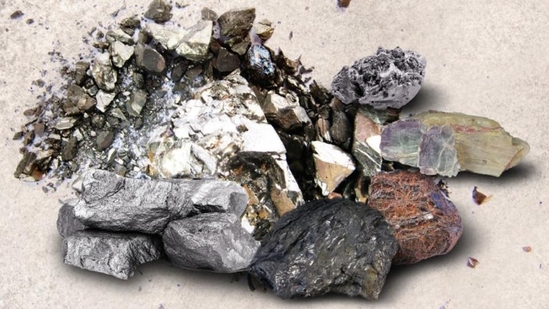India’s critical mineral strategy needs a recycling mindset
This article is authored by Rajat Verma, founder & CEO, LOHUM.
A new contest is reshaping global supply chains. This time, it is not about oil. It is about lithium, graphite, cobalt, and other critical minerals that move the modern economy.

Over the past six months, China has steadily tightened its control over the global critical minerals market. It began with export restrictions on graphite in October 2024, and soon expanded to bans on antimony, gallium, germanium, and technologies essential for processing rare earth elements. This is a clear attempt at using mineral dominance as a powerful lever of geopolitical influence.
India, like many other nations, has observed these developments with increasing concern, and India’s immediate response has been pragmatic: intensify exploration of domestic reserves, sign agreements with resource-rich countries, and invest in overseas mining assets. However, history offers some learning. Greenfield exploration strategies often face geopolitical complexities, operational delays, and environmental hurdles.
Meanwhile, an accessible and scalable alternative is already within reach, hiding in plain sight—recycling of industrial waste streams.
In 2023 alone, India generated approximately 1.6 million tonnes of e-waste. Over the next five years, this figure is expected to grow by over 25%. Buried within this discarded mountain are lithium-ion batteries, circuit boards, and magnets, which are rich sources of lithium, cobalt, nickel, and rare earth elements. It is a valuable national resource for a developing country like India.
Unlike traditional mining, which takes years to yield results, recycling infrastructure can be set up and made operational within months. It demands neither billion-dollar overseas investments nor risky excavation projects. What it does require is strategic intent and decisive policy support.
India needs to treat recycling as the primary pathway to securing critical minerals, not as a supplementary measure. The rationale for this is multifold.
First, recycling can scale quickly. India already has an installed battery recycling capacity of around 61,000 tonnes per year, equivalent to 15 GWh of energy storage. With focused incentives and robust public-private collaboration, this capacity could expand rapidly, significantly reducing the lead time for securing minerals.
Second, recycling is economically competitive. Compared to opening a new mine, which involves huge costs, regulatory hurdles, and environmental risks, setting up recycling systems is significantly more cost-effective. Battery demand in India is projected to cross 543,000 tonnes annually by 2030. Recycling can and must meet a major share of this demand.
Third, recycling builds strategic autonomy. As global supply chains become more fragmented and fragile, domestic recycling provides a self-sustaining stream of critical inputs. This reduces India’s exposure to external shocks, whether due to policy decisions, conflicts, or price volatility.
Fourth, recycling aligns with circular economy goals. A recycling-led strategy promotes resilience, reuse, and resource efficiency. It enables an Atmanirbhar Bharat to advance its energy transition ambitions without repeating the environmentally destructive patterns associated with traditional resource extraction.
Global examples provide a clear answer. Belgium and South Korea have already built integrated recycling systems for batteries and critical minerals. The EU has made Extended Producer Responsibility (EPR) mandatory for battery recycling, coupled with stringent material recovery targets. Automotive companies worldwide are investing in technologies like battery passports to track minerals across their lifecycle and comply with evolving trade regulations.
India, too, has an excellent starting point. EPR guidelines for e-waste management are already in place. Several startups have entered the recycling space with promising innovations. India’s National Critical Minerals Mission offers an ideal platform to weave these efforts into a coherent national strategy.
What remains missing is a greater sense of urgency and strategic prioritisation.
The consequences of delay may be severe. Without a recycling-led approach, India risks replacing one dependency (oil) with another (lithium, cobalt, nickel, platinum group metals, and rare earth elements). Moreover, while other nations move to secure circular supply chains, India could find itself circling around pilot projects and policy discussions, falling behind in the race.
The implications extend beyond economics. A stable supply of critical minerals is a prerequisite to its competitiveness in the global electric vehicle, advanced electronics, defence, and health care industries, both as a manufacturing hub and as a growing consumer market.
Recycling must be treated as a core industrial capability, on par with mining, manufacturing, and technological innovation.
It demands:
· Integration into India’s Production-Linked Incentive (PLI) schemes
· Fiscal incentives for industrial waste collection and reverse logistics
· Clear product standards to simplify recovery and repurposing
· Public-private partnerships to establish integrated recycling hubs
· Stringent implementation of Extended Producer Responsibility
Most critically, recycling must be embedded into the mainstream economic policy dialogue—as a pillar of India’s national security and industrial strategy, not relegated to the margins under waste management.
The future of critical minerals is not buried deep underground. It is already present in the devices we discard each day.
India has a rare chance to lead the next phase of industrial strategy. While others dig deeper, we can think smarter. Recycling is not a fallback option. It is the most strategic first step towards mineral independence.
This article is authored by Rajat Verma, founder & CEO, LOHUM.
All Access.
One Subscription.
Get 360° coverage—from daily headlines
to 100 year archives.



HT App & Website







